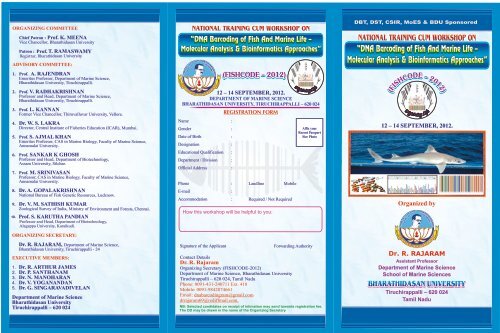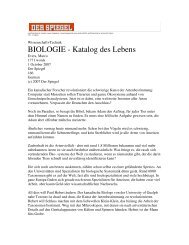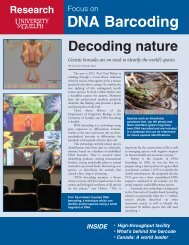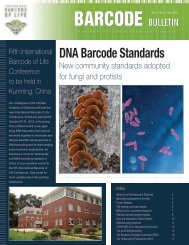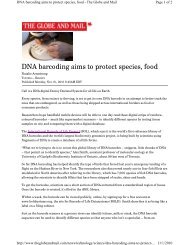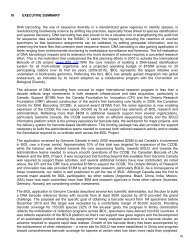Workshop Brochure - iBOL
Workshop Brochure - iBOL
Workshop Brochure - iBOL
Create successful ePaper yourself
Turn your PDF publications into a flip-book with our unique Google optimized e-Paper software.
DBT, DST, CSIR, MoES & BDU Sponsored<br />
Prof.<br />
Registrar, Bharath<br />
SWAMY<br />
10.<br />
Prof. S. KARUTHA PANDIAN<br />
Professor and Head, Department of Biotechnology,<br />
Alagappa University, Karaikudi.<br />
ironment and Forests, Chennai.<br />
How this workshop will be helpful to you:<br />
NB: Selected candidates on receipt of intimation may send towards registration fee.<br />
The DD may be drawn in the name of the Organizing Secretary
SCOPE OF THE WORKSHOP<br />
species on the planet,” Hebert.<br />
TOPICS TO BE COVERED<br />
l and bioinformatic<br />
tools and to review research works with their applications in<br />
biological sciences.<br />
The topics to be covered include<br />
Prof. Paul D N Hebert is the Father of DNA Barcoding<br />
research and he proposed the above concept. The technology of<br />
DNA Barcoding is of very recent origin which facilitates<br />
species identification through the use of short, standardized<br />
gene region-mitochondrial Cytochrome C Oxidase Subunit I<br />
(COI). Currently, DNA Barcoding is being employed in large<br />
variety of organisms ranging from yeasts to human beings.<br />
Several workers have validated the effectiveness of DNA<br />
Barcoding. Barcoding promises to revolutionize our capacity to<br />
know an monitor biodiversity which has profound societal and<br />
economic impacts. It is immensely useful for identification of<br />
known species and discovery of new ones. DNA Barcoding<br />
approach is helpful in identifying a specimen as belonging to a<br />
certain animal species based on the above single universal<br />
marker. Over the last 8 years, this approach has become<br />
increasingly popular and advances have been made in various<br />
groups of organisms. Establishing DNA Barcodes to identify<br />
previously defined groups of organisms at any taxonomic level<br />
is a powerful application of modern technology to biodiversity<br />
study. DNA Barcoding is a unique concept with many<br />
innovative attributes undertaking continuos improvement. It is<br />
not the goal, but the tool to be used in order to improve our<br />
understanding of the surrounding world. It is a fast reliable and<br />
cheap method for species identification and discovery. It<br />
provides permanent tags unchanged during taxonomic<br />
revisions. It will have multiple applications for marine life:<br />
Identification of larvae, invasive species, cryptic species, new<br />
species, controlling illegal trade of protected species , stock<br />
management, biodiversity assessments, ecosystem monitoring,<br />
revisions of certain taxa, inference of phylogenetic<br />
relationships, phylogeographic and speciation patterns.<br />
DNA extrac<br />
from different biological samples.<br />
Young Academicians / Scientists / Research Scholars from<br />
academic, scientific and industrial setups working in the areas of<br />
Marine Biology, Zoology, Biotechnology, Microbiology and various<br />
other branches of Life Sciences are invited to attend the workshop.<br />
Preference will be given to candidates for whom it has immediate<br />
relevance.<br />
The registration fee covers <strong>Workshop</strong> material, working<br />
lunch and refreshments for all the three days of the workshop.<br />
The Selected candidates upon intimation may send the DD.<br />
Accommodation will be arranged for the participants on<br />
request through payment basis.<br />
of participation - 25-08-2012<br />
2


